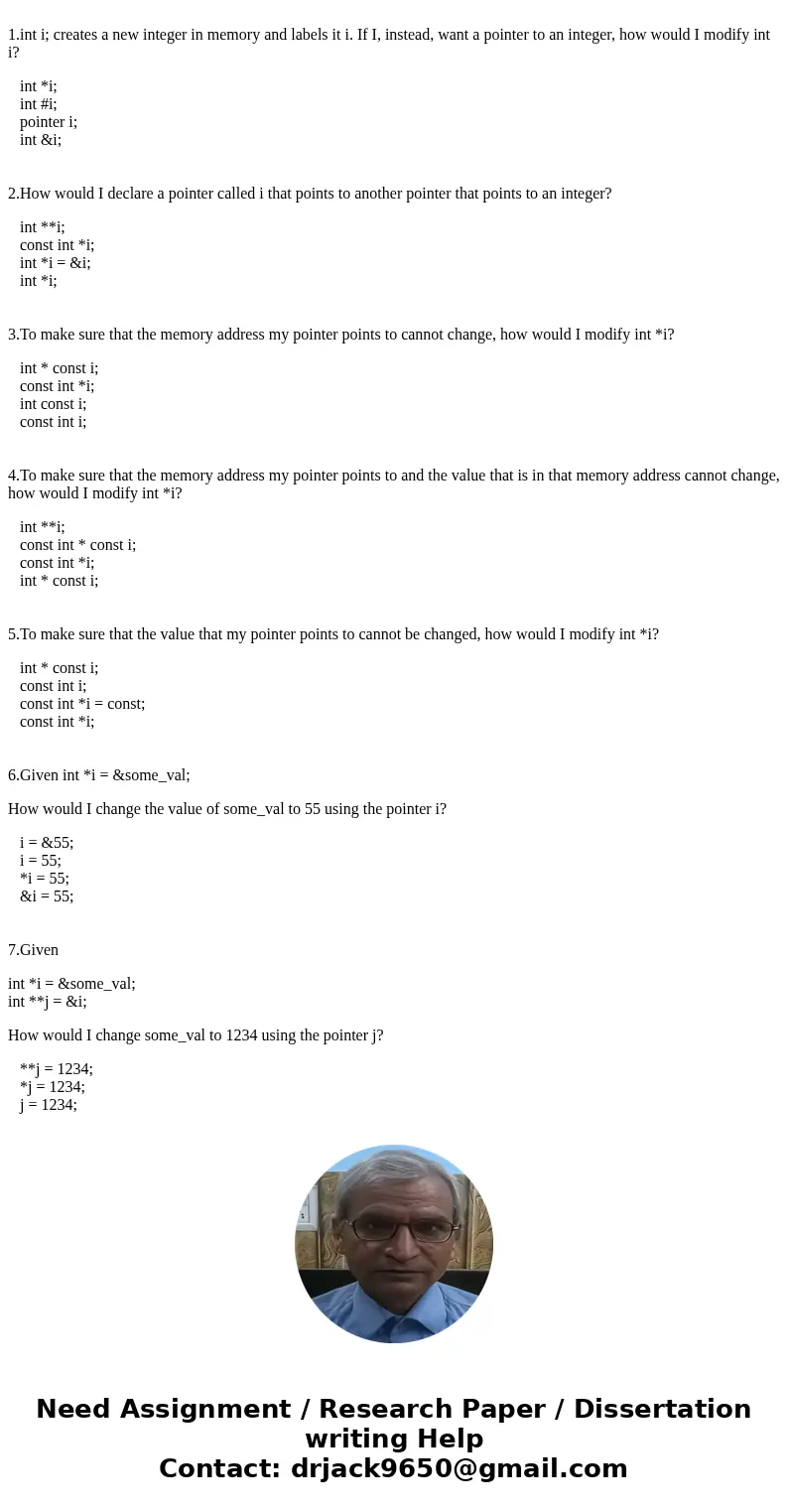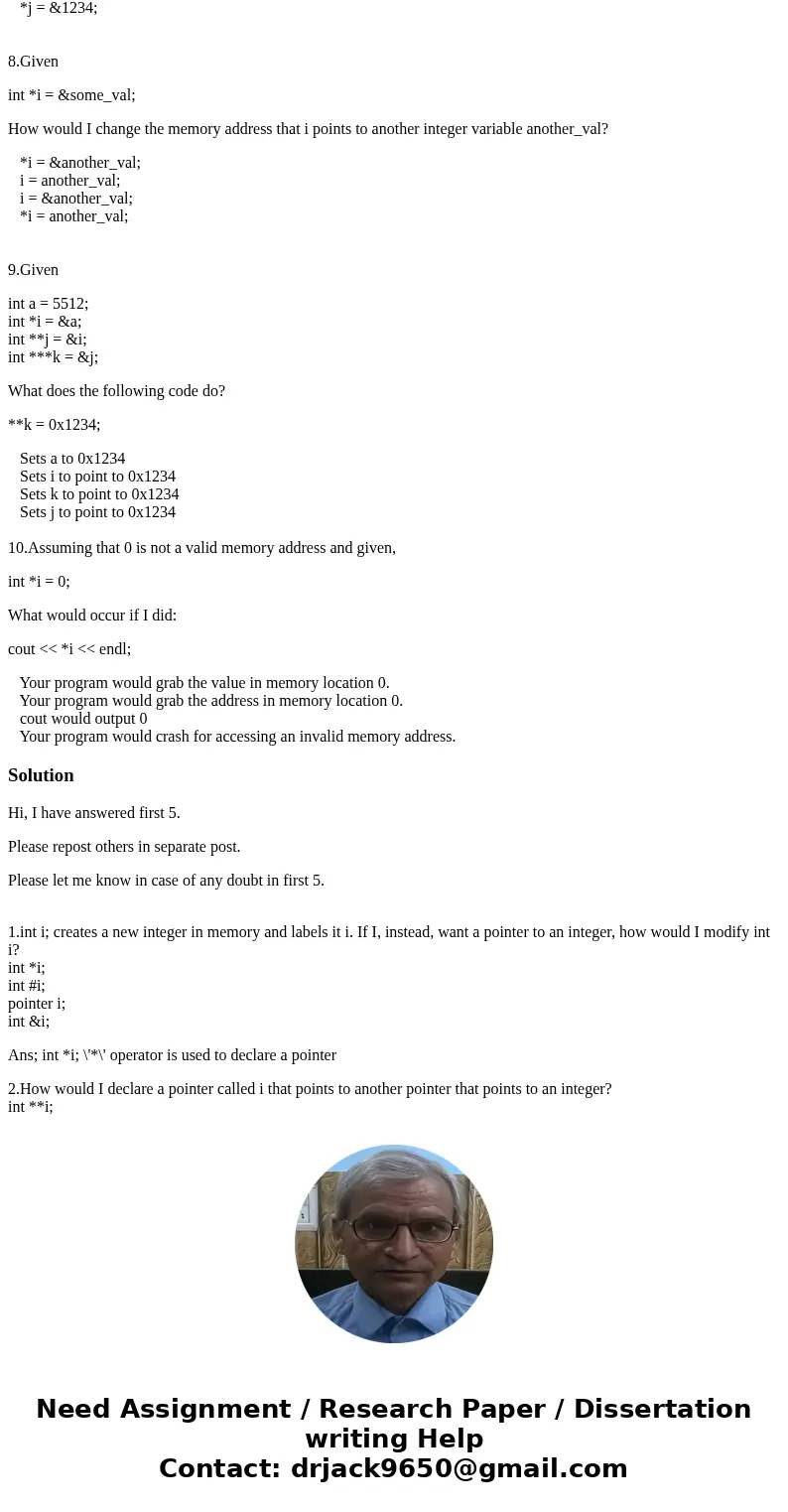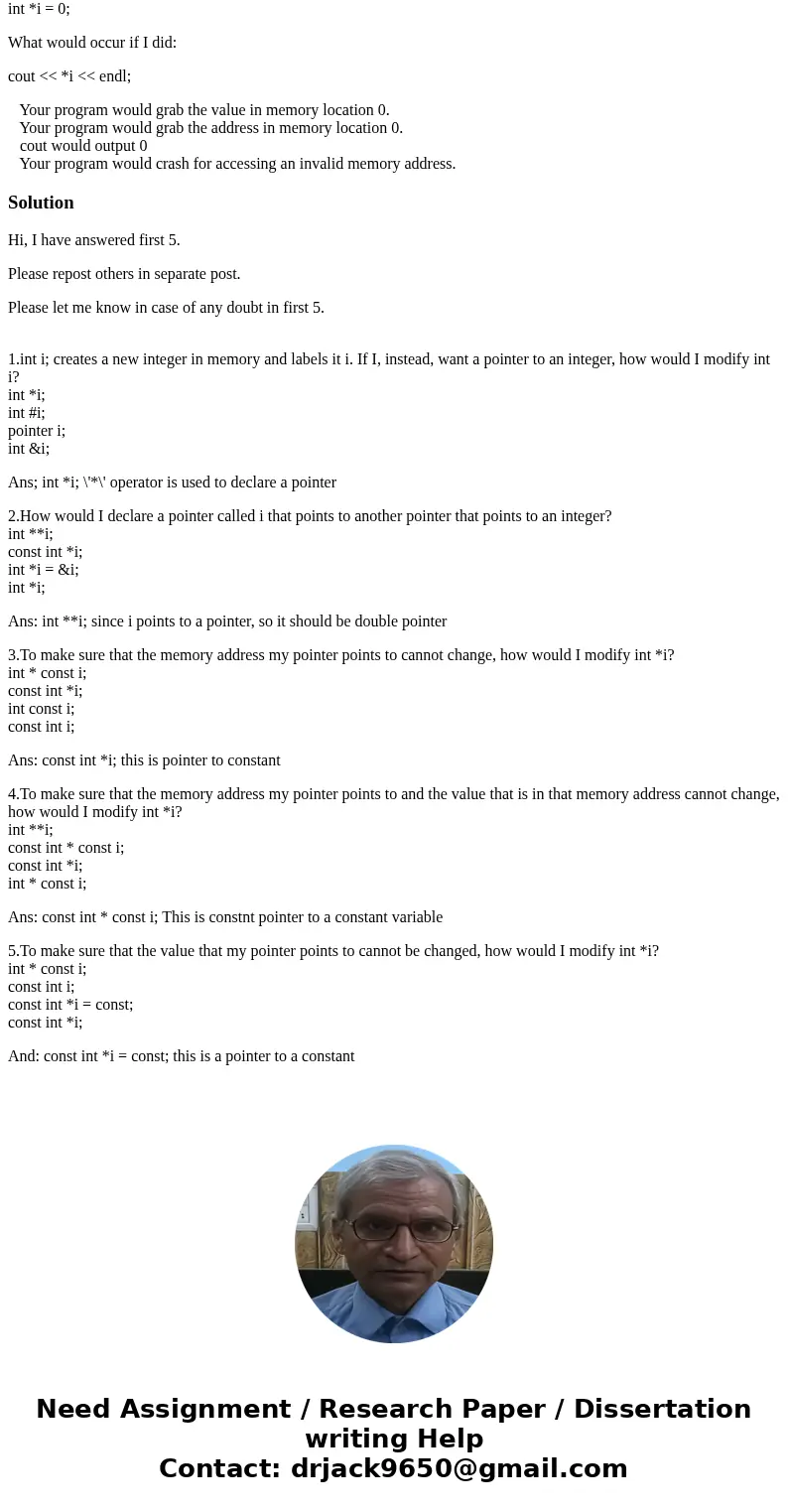1int i creates a new integer in memory and labels it i If I
1.int i; creates a new integer in memory and labels it i. If I, instead, want a pointer to an integer, how would I modify int i?
int *i;
int #i;
pointer i;
int &i;
2.How would I declare a pointer called i that points to another pointer that points to an integer?
int **i;
const int *i;
int *i = &i;
int *i;
3.To make sure that the memory address my pointer points to cannot change, how would I modify int *i?
int * const i;
const int *i;
int const i;
const int i;
4.To make sure that the memory address my pointer points to and the value that is in that memory address cannot change, how would I modify int *i?
int **i;
const int * const i;
const int *i;
int * const i;
5.To make sure that the value that my pointer points to cannot be changed, how would I modify int *i?
int * const i;
const int i;
const int *i = const;
const int *i;
6.Given int *i = &some_val;
How would I change the value of some_val to 55 using the pointer i?
i = &55;
i = 55;
*i = 55;
&i = 55;
7.Given
int *i = &some_val;
int **j = &i;
How would I change some_val to 1234 using the pointer j?
**j = 1234;
*j = 1234;
j = 1234;
*j = &1234;
8.Given
int *i = &some_val;
How would I change the memory address that i points to another integer variable another_val?
*i = &another_val;
i = another_val;
i = &another_val;
*i = another_val;
9.Given
int a = 5512;
int *i = &a;
int **j = &i;
int ***k = &j;
What does the following code do?
**k = 0x1234;
Sets a to 0x1234
Sets i to point to 0x1234
Sets k to point to 0x1234
Sets j to point to 0x1234
10.Assuming that 0 is not a valid memory address and given,
int *i = 0;
What would occur if I did:
cout << *i << endl;
Your program would grab the value in memory location 0.
Your program would grab the address in memory location 0.
cout would output 0
Your program would crash for accessing an invalid memory address.
Solution
Hi, I have answered first 5.
Please repost others in separate post.
Please let me know in case of any doubt in first 5.
1.int i; creates a new integer in memory and labels it i. If I, instead, want a pointer to an integer, how would I modify int i?
int *i;
int #i;
pointer i;
int &i;
Ans; int *i; \'*\' operator is used to declare a pointer
2.How would I declare a pointer called i that points to another pointer that points to an integer?
int **i;
const int *i;
int *i = &i;
int *i;
Ans: int **i; since i points to a pointer, so it should be double pointer
3.To make sure that the memory address my pointer points to cannot change, how would I modify int *i?
int * const i;
const int *i;
int const i;
const int i;
Ans: const int *i; this is pointer to constant
4.To make sure that the memory address my pointer points to and the value that is in that memory address cannot change, how would I modify int *i?
int **i;
const int * const i;
const int *i;
int * const i;
Ans: const int * const i; This is constnt pointer to a constant variable
5.To make sure that the value that my pointer points to cannot be changed, how would I modify int *i?
int * const i;
const int i;
const int *i = const;
const int *i;
And: const int *i = const; this is a pointer to a constant



 Homework Sourse
Homework Sourse